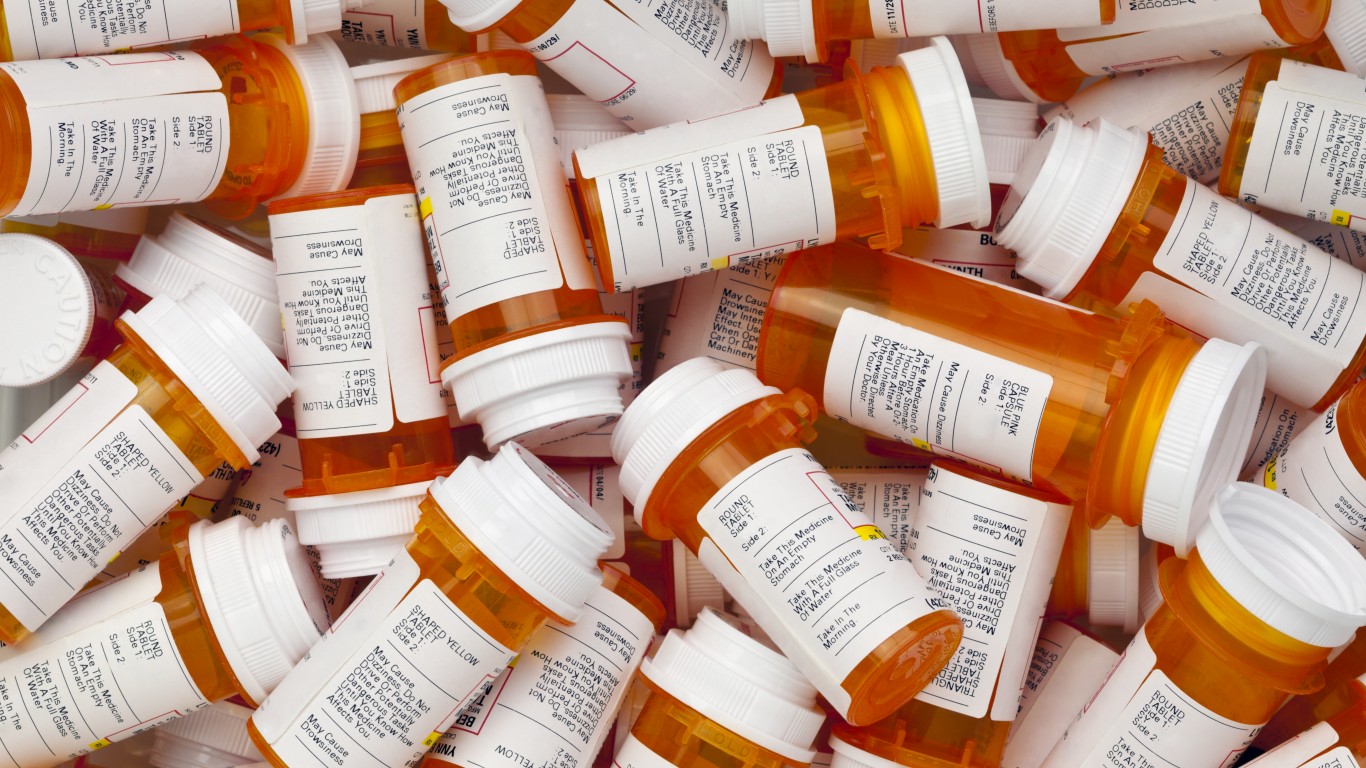Health and Healthcare
Big Pharma Sees Rising Tide in Short Interest

Published:
Last Updated:

Pharmaceutical companies usually are involved in a lengthy process of getting their drug candidates to market through clinical trials. There is a fair amount of risk involved, should a study come back negative or a candidate not be approved. Conversely, if a drug gains FDA approval or passes a clinical trial, there can be big upside.
The White House has promised reforms in the health care sector, such as changing the bidding process for drugs and shortening the FDA approval process. It is yet to be seen how much headway it actually can make with these reforms.
Keep in mind that short sellers betting against big pharma are taking on an added risk. They have to pay out the ongoing high dividends on top of the cost of borrowing the shares.
The June 28 short interest data have been compared with the previous figures, and short interest in most of these selected pharmaceutical stocks increased.
Short interest in Pfizer Inc. (NYSE: PFE) decreased to 56.97 million shares from the previous 63.79 million. The stock was trading at $44.06 Thursday morning, within a 52-week range of $37.12 to $46.47.
The number of Merck & Co. Inc. (NYSE: MRK) shares short increased to 19.34 million from 17.31 million in the previous period. Its shares were trading at $84.82, in a 52-week range of $62.01 to $87.07.
Bristol-Myers Squibb Co. (NYSE: BMY) saw its short interest grow to 111.32 million shares from the previous reading of 104.72 million. Shares traded at $45.96, in a 52-week trading range of $44.30 to $63.69.
The number of shares short in AbbVie Inc. (NYSE: ABBV) increased to 28.21 million from the previous 19.58 million. The stock was trading at $71.65, and its 52-week range is $65.06 to $100.23.
Eli Lilly and Co.’s (NYSE: LLY) short interest dropped to 11.50 million shares from the previous 12.51 million. The stock was trading at $114.53. The 52-week range is $87.92 to $132.13.
Teva Pharmaceutical Industries Ltd.’s (NYSE: TEVA) short interest increase to 51.57 million from the previous level of 41.91 million. Shares were trading at $9.18, in a 52-week range of $7.96 to $25.96.
Retirement can be daunting, but it doesn’t need to be.
Imagine having an expert in your corner to help you with your financial goals. Someone to help you determine if you’re ahead, behind, or right on track. With SmartAsset, that’s not just a dream—it’s reality. This free tool connects you with pre-screened financial advisors who work in your best interests. It’s quick, it’s easy, so take the leap today and start planning smarter!
Don’t waste another minute; get started right here and help your retirement dreams become a retirement reality.
Thank you for reading! Have some feedback for us?
Contact the 24/7 Wall St. editorial team.